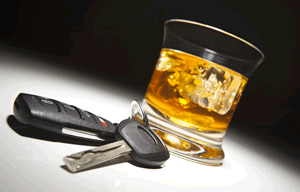Top 5 things to know about DUI
Over the last 30 years or so powerful lobbying groups, as well as state legislatures, have worked to increase the penalties and fines for DUI convictions.
Drivers arrested and convicted of DUI will no longer get away with a simple wink and slap on the wrist. DUI fines can be very expensive, severe, and have long-term consequences. Before you decide to drink and drive there are several important things you should consider.
Top 5 things to consider about DUI arrest and conviction
- Consequences for DUI are severe in every state.
First, it’s important to understand that all states have passed laws which will require high fines and penalties to be given to all drivers convicted of DUI.
For example, in the State of Texas, a first-time driver convicted of DWI (driving while intoxicated) can be fined up to $2,000, can be required to spend between three and 180 days in jail, and have their license suspended for up to 2 years. As if that was not enough, your insurance rates may substantially increase. and the state can charge an annual $2,000 surcharge for three years for you to keep your driver’s license.
Other states have similar penalties and fines with some states requiring drivers to install an ignition interlock device on their vehicle if they want to continue to drive.
Consider also, if you are arrested with any aggravating factors (i.e. you were speeding, your blood alcohol concentration was extremely high, or you had a child in the car at the time of the DUI arrest) you may face even more severe penalties.
- Your BAC does not have to be over the legal limit to be arrested for DUI.
Although it is illegal in every state to drive with a blood alcohol concentration (BAC) at or above the illegal limit of 0.08%, drivers may also be arrested with a BAC below the legal limit if they are unable to safely operate their vehicle.
In some cases, DUI arrests with low BAC readings may be more difficult to prove, but in other cases- like if you are involved in a car accident- there may be sufficient evidence to prove your driving was unsafe.
Talk to a DUI lawyer if you have questions about your DUI arrest or the evidence the state may have that you were intoxicated and not able to safely drive.
- You have the legal right to refuse a field sobriety test and preliminary breathalyzer.
One of the biggest failures of drivers when they are arrested for DUI is not understanding their legal rights. Not only do drivers routinely say more than they should, they also allow police officers to search their vehicles without a warrant and voluntarily submit to a variety of tests.
If you are arrested for driving under the influence of alcohol or drugs you have the legal right to refuse to submit to a field sobriety test and/or a preliminary breathalyzer. Although the refusal may not keep the officer from arresting you for DUI, at least you have not provided any additional evidence to the police to prove their case.
Keep in mind, police officers are not required to tell you your legal rights. You also will not have the right to contact your lawyer prior to agreeing to sobriety testing. With this in mind, it’s important for you to understand your rights before you drive.
- Failure to submit to a chemical test following your DUI arrest will result in a license suspension.
Above we discussed your right to refuse to submit to a field sobriety test and a preliminary breathalyzer test. Your right to voluntarily refuse testing ends when the police offer places you under arrest.
After a DUI arrest the police officer will ask you to take a chemical test. If you decide to refuse a chemical test of your blood, breath, or urine following a DUI arrest you will have your license suspended.
In fact, your license could be suspended for more than one year even if you are ultimately found not guilty of DUI. So, although you can refuse a chemical test, in some states a chemical test refusal may have penalties which are almost comparable to a DUI conviction.
Again, it’s important to understand your rights and the possible penalties if you decide to refuse DUI chemical testing.
- DUI convictions generally cannot be expunged from your driving record.
Think you will be able to expunge your DUI record after a DUI conviction? Think again. Although in some states it may be possible, under some conditions, generally a DUI conviction cannot be expunged and will remain part of your driving record forever. Unfortunately, this is one of the many long-term ramifications of getting arrested and convicted of DUI.
Bottom Line:
Understanding DUI laws and the possible penalties you could face if convicted is very important.
Related Pages
Previous Question
Should I submit to a chemical test after a DUI arrest?Next Question
What are the fines and penalties for a DUI arrest?Latest Question
Will my daughter inherit my debts when I pass?
Prior to the distribution of your assets and income, the courts will pay your debts.
Category: bankruptcy


